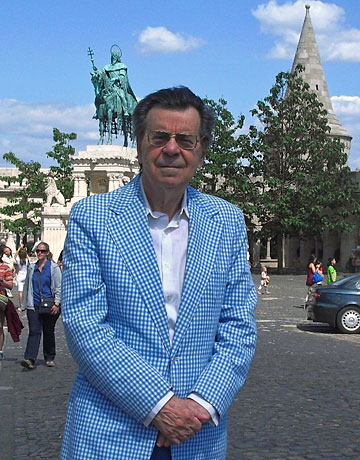


The first three problems are classical helpmates – both sides cooperate to make the task possible. In the first two it is White to play, and both sides work together to set up a position in which Black is mated on move four. In the third problem it is Black to move, with White mating four moves later. But keep your eyes open: for a very specific reason this problem is completely different from the first two – as is the fourth problem, which is described below.

White to play – helpmate in four moves

White to play – helpmate in four moves

Black to play – helpmate in four moves

Black to play – help-stalemate in five moves
In this final problem Black makes the first move, and the two side cooperate to construct a position in which one side is stalemated after five moves of play. Careful: the problem is not trivially easy, as you might think at first glance.
We wish you fun with these four problems, which appeared in the April 2015 issue of Chess Life (in slightly different form). The solutions will be given here in a few days. It is important that you do not post them or any key observations you make in our discussion section below – you may only announce that you have solved the problems. Please let other readers work out the tricks for themselves.

Pál Benkö, 86, is a Hungarian-American chess grandmaster, openings theoretician, author and problemist. He became Hungarian champion when he was 20 and finished in first place (or tied for first place) in eight US Championships, a record: 1961, 1964 (in that year he also won the Canadian Open Chess Championship), 1965, 1966, 1967, 1969, 1974, 1975. Benko's highest achievements were playing in the Candidates Tournament with eight of the world's top players in 1959 and 1962. He qualified for the 1970 Interzonal tournament, the leaders of which advance to the Candidates. However, he gave up his spot in the Interzonal to Bobby Fischer, who went on to win the World Championship in 1972.
As we have learned (in the magazine New in Chess 2016#2) Benko actually struck the 19-year-old Bobby Fischer during the 1962 Candidates tournament in Curaçao during an argument over the services of GM Arthur Bisguier during adjourned games. Pal called Bobby a selfish pig, and Bobby said equally nasty things to Pal, who told him not to repeat that. When he did, "I hit him. The next day I regretted it and from that moment on I could not play against him." (Benko had beaten Fischer in the first round of that tournament). "I should not have hit him," says Benko. Miraculously the incident did not destroy their friendship – Fischer continued to revere, admire and respect Benko till the end of his life.